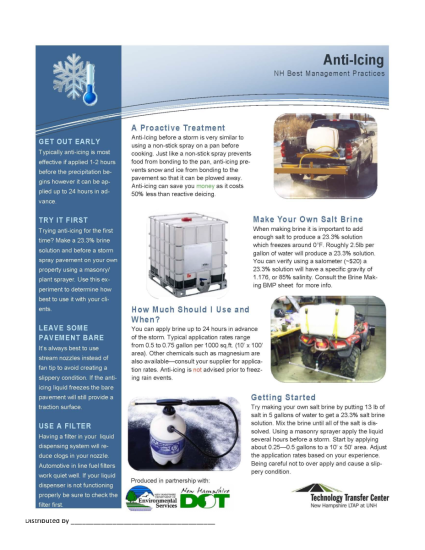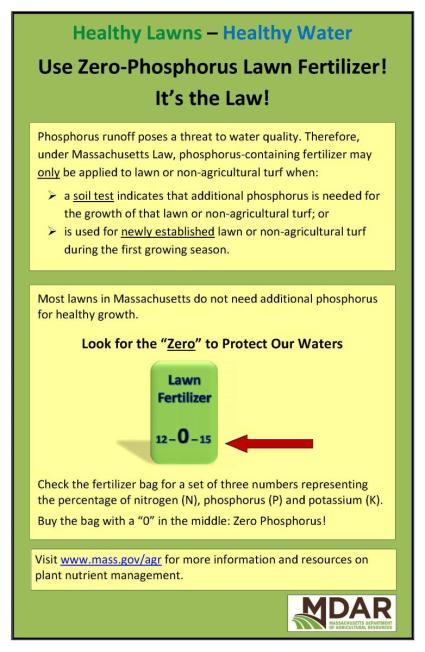Businesses
|
Businesses, institutions, churches, and hospitals can all do their part to keep Massachusetts' waterways clean. Here you can find tips to prevent stormwater pollution from your parking lots, grounds, and operations. Click Here for more information on ways that businesses can prevent stormwater pollution.
Waste and Material StorageIf rain falls into your dumpsters or on your raw materials, then it's carrying some of that stuff with it as it drains away. A little good housekeeping and a few sheds or tin roofs can take care of that problem. Property managers should inspect dumpster regularly and only store chemicals outside with tight-fitting lids. Properly maintain any grease traps in your establishment. Do not pour oil and grease into sinks, floor drains, catch basins, or onto the ground. Wash garbage cans, floor mats, and kitchen equipment in designated wash areas.
| |
Maintain Buildings and FacilitiesFacilities should inspect and maintain drainage and stormwater systems including cleaning gutters, maintaining drainage pipes, keeping grates clear of obstructions and preventing spills.
| |
Parking LotsBusinesses, churches, hospitals, and other institutions can do a lot to reduce polluted runoff from their parking lots. One solution is to replace asphalt with modern "permeable" pavements that allow rain and melting snow to soak in rather than run off. Another is to design parking lots to drain into catch basins, filter strips, and stormwater ponds, rather than directly into the storm sewer system. For more information on Bioretention Areas, Click Here.
| |
Snow and Ice RemovalWhen businesses, churches, and hospitals use road salt and de-icers, melting snow carries those chemicals into waterways. Businesses should store these chemicals carefully and apply them sparingly. When purchasing, read the labels on de-icing products and choose those that are not toxic to animals and plants. The Massachusetts Department of Environmental Protection has some guidelines on where and how businesses and local governments should store road salt, to protect our waterways. For more informations on the Mass DEP guidelines, Click Here. |  |
Outdoor CleaningGrounds crews should sweep sidewalks, loading docks, and parking lots and dispose of the trash and debris in the dumpster, rather than washing these areas with a hose. If outdoor washing is necessary, look for environmentally friendly, water-based cleaning products. Maintenance crews should rinse paint cans, brushes, buckets, or other cleaning materials in an indoor sink.
| |
Landscaping Chemicals and FertilizerGroundskeepers should test soil and read the label before applying fertilizer. If they use too much fertilizer, the excess will just wash away in the next rain, polluting local waterways. Use fertilizers sparingly and sweep up driveways, sidewalks, and walkways. Fertilizer may not even be necessary! According to experts, many businesses over-fertilize their landscaping. Click Here for the University of Massachusett's handy guide for testing soil to determine if it can absorb any more nutrients. Use organic and phosphorous free fertilizer. You can find phosphorous free fertilizers by looking for three numbers on the package that indicate percentage of nitrogen, phosphorous and potash. Packages with a "zero" in the middle are phosphorous free. Wayland is working to reduce phosphorous levels in our waterways. Click Here for our Phosphorous Fact Sheet.
|  |
IrrigationMost businesses only need to water their landscaping once a week. It's smart to put sprinklers on timers so they water early in the morning, and point them so that they don’t water the sidewalk or driveways. If your businesses has stormwater ponds, cisterns, or rain barrels that capture rain before it leaves your property, using that water on your landscaping often makes a lot of sense. Consider reusing your water. Click Here for more information.
| |
Fleet CareMany institutions maintain fleets of trucks, buses, ambulances, and other vehicles on site. Do this carefully to keep gasoline, oil, and soap suds out of storm drains and waterways. Vehicle maintenance should be done indoors, using drop cloths and drip pans. If there is a spill, clean it up promptly using absorbent sand and kitty litter. The Massachusetts Office of Energy and Environmental Affairs has published guidelines on fleet maintenance for municipal governments. Click Here for some great advice for businesses, churches, hospitals, and other institutions, too!
| |
Gas StationsFuel dispensing areas, the air supply area, dumpsters and trash bins at gas stations have the potential to pollute stormwater runoff with heavy metals, gasoline, oil, grease, automotive fluids, and trash. Stormwater carries these pollutants to nearby lakes, streams, estuaries, and other waterbodies. Mismanaged and illicit pollutants in stormwater can harm wildlife, cause flooding and erosion, and limit recreation in public spaces. Click Here for Town of Wayland’s fact sheet which provides information, methods, and Best Management Practices (BMPs), that are recommended for gasoline stations. Please review these BMPs with your staff to ensure that our local waters remain as clean as possible.
| |

